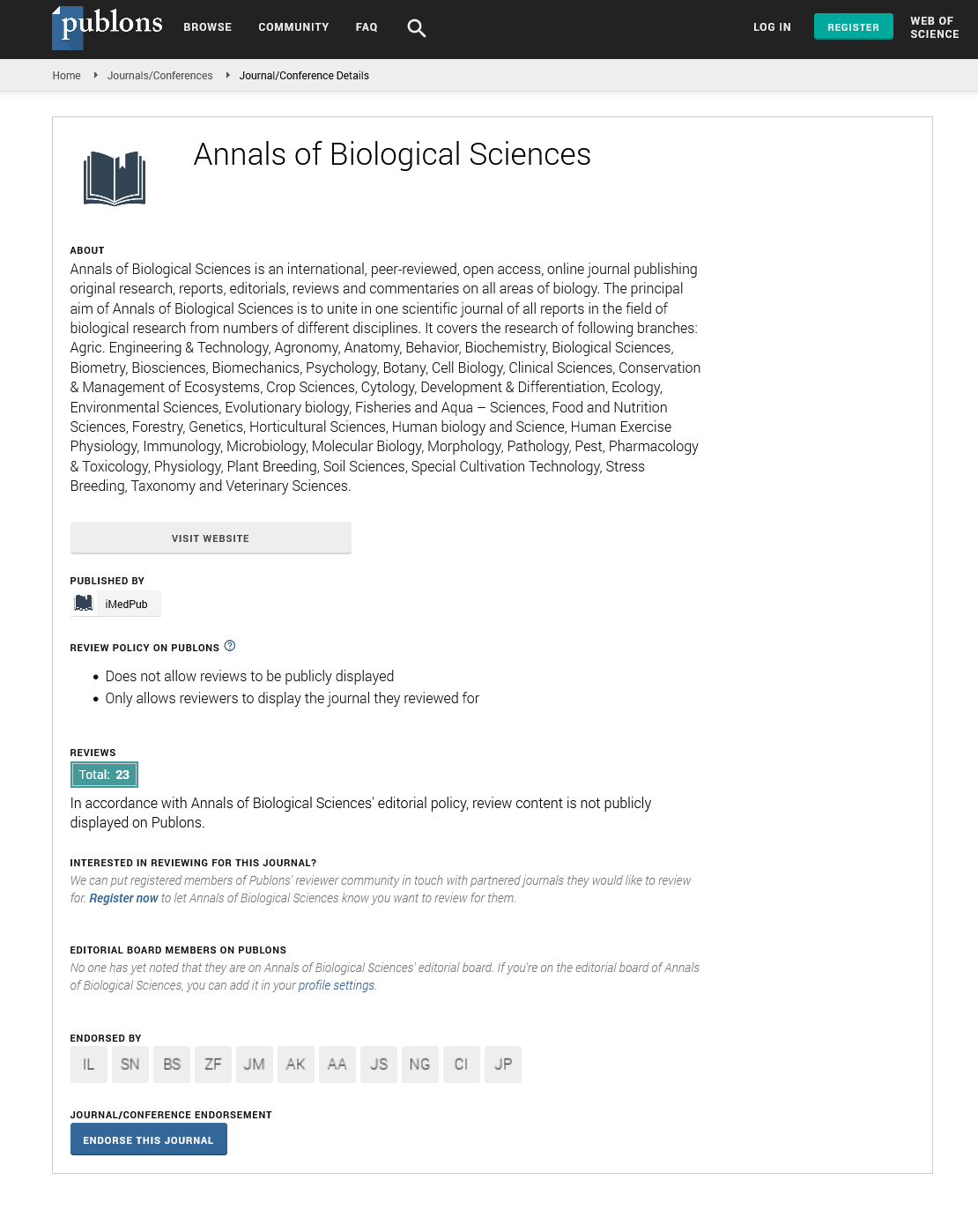ISSN : 2348-1927
Annals of Biological Sciences
Abstract
Probiotic Effect on Zinc Sulphate Induced Haematological Toxicity in the Fish Mystus montanus
Zinc is introduced into aquatic systems through an industrial process, such as smelting and the use of fertilizers in agriculture. At higher concentrations, Zn disrupts physiological and biochemical mechanisms causing both ionoregulatory disturbance and oxidative damage in fish. The present study was designed to evaluate the haematological parameters of the fish Mystus montanus intoxicated with ZnSo4 and to analyse the protective effect probiotic bacteria Lactobacillus rhamnosus on the fish for 60 days. Two sub-lethal concentrations of zinc (4.56 mg ZnSo4/L (1/10th of LC50) and 2.28 mg ZnSo 4 /L (1/5 th of LC50) were prepared after determining the LC50 value (45.6 mg/L) and used for the toxicity study. All the haematological parameters were significantly decreased (p<0.05) from the control in the T3 (1/5th LC50 dose of ZnSo4 and Basal diet) group of fish. However, the fish fed diet supplemented with probiotic bacteria in T4 (1/5th LC50
dose of ZnSo4 and Probiotic diet) group showed a significant increase (p<0.05) from the antidote control group T3. This study suggests that dietary supplementation of probiotic bacteria can cope up with zinc pollutants in the aquatic medium.
Author(s): Sakthika Thuraiswami
Abstract | Full-Text | PDF
Share This Article
Google Scholar citation report
Citations : 406
Annals of Biological Sciences received 406 citations as per Google Scholar report
Annals of Biological Sciences peer review process verified at publons
Abstracted/Indexed in
- Google Scholar
- China National Knowledge Infrastructure (CNKI)
- WorldCat
- Publons
- ROAD
- Secret Search Engine Labs
Open Access Journals
- Aquaculture & Veterinary Science
- Chemistry & Chemical Sciences
- Clinical Sciences
- Engineering
- General Science
- Genetics & Molecular Biology
- Health Care & Nursing
- Immunology & Microbiology
- Materials Science
- Mathematics & Physics
- Medical Sciences
- Neurology & Psychiatry
- Oncology & Cancer Science
- Pharmaceutical Sciences
